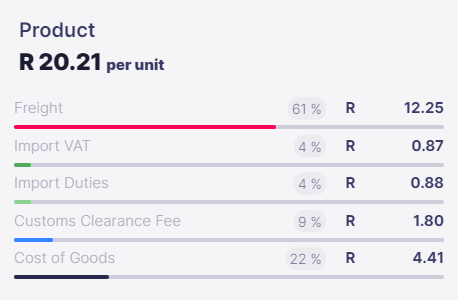
If you do any light reading into the role that millennials are playing in the eCommerce industry, you’re bound to come across piles of market studies and articles about the consumer habits of this demographic.
Make no mistake – Millennials and Gen Z consumers are the inevitable future of the consumer market. It would be a mistake to discount the buying habits of these young shoppers when designing your own business plans.
However, what many of these studies are overlooking is the role that Millennial entrepreneurs are starting to assume as young entrepreneurs. Millennial entrepreneurship is bound to change the face of eCommerce. We’re happy to explain how.
McKinsey and Company looked into the effects of COVID-19 on digital acceleration and found that the pandemic stimulated a jump of approximately seven years in the timeline of digitisation. Seven years!
We know already that, if you haven’t moved your business into a semi-digital space, you’re being left behind in the dust. Even if brick-and-mortar stores are not offering online shopping, almost everyone has established a digital presence. If the McKinsey report is anything to go by, soon it won’t be called “digital marketing” at all – it will just be plain old marketing again.
As born-and-bred digital natives, Millennial entrepreneurs have the upper hand in this regard. eCommerce demands that its merchants use digital tools like social media and email marketing as ways of reaching new and existing shoppers. As a generation which has, by rule of thumb, almost never not had the Internet in its life, Millennials are primed to engage with digital marketing as second nature.
It goes beyond computer literacy and being tech-savvy, although these skills certainly count for an advantage in eCommerce. With the advent of social media, Millennial entrepreneurs are innately sensitive to practise of branding and marketing in ways that their elders are not.
In other words – for active social media users who have grown up on MySpace and Facebook and Instagram, it’s relatively easy for Millennial entrepreneurs to grasp the fundamentals of marketing as soon as they’re old enough to conceptualise a personal brand. For a generation to whom reaching and attracting followers is a daily practise, cultivating an online community of shoppers who are likely to buy into your brand is as simple to Millennial entrepreneurs as setting up an email address.
Now, considering that eCommerce entrepreneurs are being thrust into a digitally accelerated landscape, Millennials are coming out tops. Everyone has been dropped into the digital deep end, but Millennial entrepreneurs have been swimming in these waters since Apple announced that they were making a cellphone.
Generationally, it is actually feasible that many Millennial entrepreneurs are selling to a market comprised of people who are only a few years younger than they are. The purchasing power that Gen Z holds is bound to change the market. Although they are different, there are some values that these generational siblings share. This gives Millennial entrepreneurs who are marketing to Gen Z consumers a competitive edge.
For instance, this 2021 Kibo retail survey with Drapers revealed that ethics, sustainability, and equality are of significant importance to young consumers. 41% of the Gen Z portion of the study said that they were willing to pay more for sustainable fashion, and 73.9% of Millennial respondents think it’s “very or fairly important that brands show that they are pro-diversity and pro-equality.”
Given the purchasing habits and values of the burgeoning Gen Z market and the proximity of Millennial entrepreneurs to these young consumers, the latter group has privileged insights into how to market their products and, indeed, what kinds of products to stock in the first place. Millennial entrepreneurs are showing up in the right digital spaces with the right market insights to sell to Gen Z. It’s a generational advantage which, as Gen Z matures into the world’s most powerful consumers, is a distinct commercial advantage.
This Forbes article tells us that, in America, a Millennial entrepreneur is 77% more likely to be African American than an entrepreneur from the baby boomer generation. Furthermore, 28% of Millennial-owned small businesses are owned by female entrepreneurs, compared to 25% of boomer-owned SMEs.
Millennial entrepreneurs are the most diverse group ever to enter the free market. By its very nature, this degree of diversity is disrupting longstanding trends by cracking open new markets, defining new trends, and effecting economic transformation on a global scale.
One of the most exciting places to witness this economic transformation is close to home. According to UNCTAD Secretary-General Mukhisa Kituya, a digital transformation is well underway all across Africa. The transformation is being heralded by SMEs and young entrepreneurs who are “willing to take a risk and pioneer new business models as game-changers.”
Generally, there is an observable trend of Millennial entrepreneurs connecting informal merchants with eCommerce platforms which allow them to access online marketplaces. This access is invaluable. It formalises income streams, stimulates economic growth, and makes it far easier to connect a hungry consumer market with skilled creators and entrepreneurs.
The same UNCTAD article which quotes Dr. Kituya mentions two young African entrepreneurs – Leah Uwihoreye of Made in Rwanda and Basson Engelbrecht of Hoorah. Both entrepreneurs run eCommerce platforms that connect women artisans and informal vendors respectively with markets that are seeking their goods and services.
By bringing African markets into an eCommerce space, these young entrepreneurs are making it possible for other self-made entrepreneurs to stop relying solely on a fluctuating tourist market. Site traffic, after all, is the new foot traffic.
It’s clear that Millennial entrepreneurs are already effecting significant changes in the way that digital markets operate. They’re young, they’re tech-savvy, they know how to sell to Gen Z, and they’re innovating ways to bring eCommerce to new global economic hubs.
Landed cost is the sum of all expenses associated with importing your goods from China to South Africa. This includes the cost of the goods paid to your supplier, the shipping costs, clearance costs and the import taxes & duties.
It is represented on a per unit cost and helps you with:
Note: This is not what you are paying to Airpool but rather what you are paying to all the suppliers and relevant parties: Airpool, the Manufacturer of the goods and the Import Taxes (VAT & Duties)
